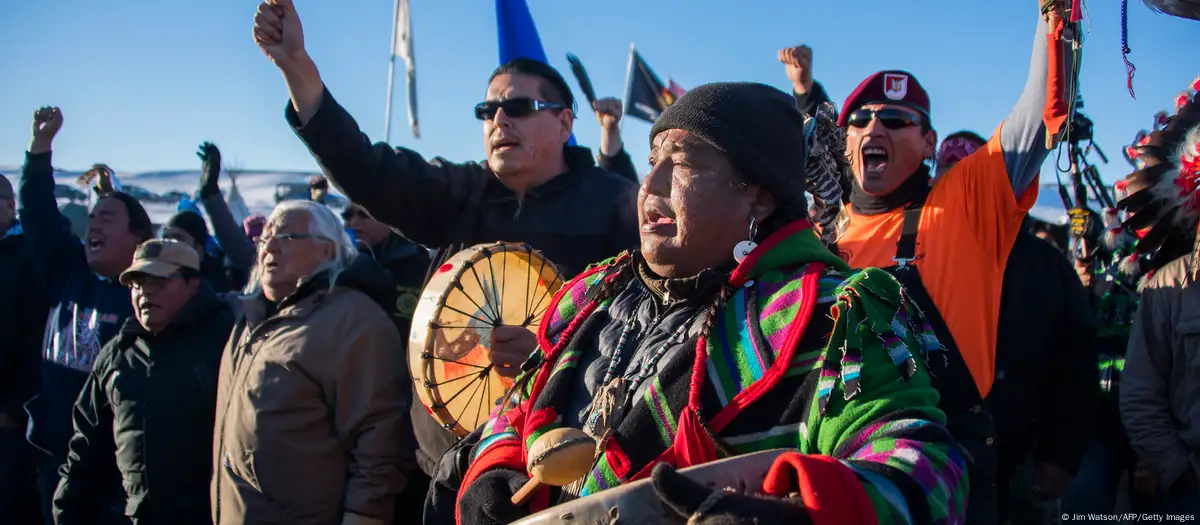A US jury has awarded a pipeline company hundreds of millions of dollars in damages after the company sued Greenpeace for playing a big role in 2016 protests against the Dakota Access Pipeline.
A jury in North Dakota ordered Greenpeace to pay hundreds of millions of dollars in damages to Energy Transfer, the pipeline company behind the Dakota Access Pipeline.
The company sued Greenpeace for $300 million (€275 million) for organizing protests near the Standing Rock Reservation in 2016.
The oil route was highly controversial and inspired large-scale protests at the time, stemming from concerns about the violation of rights of Native Indian tribes.
A long legal battle over Dakota Access Pipeline
The underground multi-state pipeline, which is 1,172 miles (1,186 kilometers) long, has been in operation since mid-2017.
But the pipeline has faced many legal challenges both before and after it was built.
In 2016, the Standing Rock Sioux Tribe, a federally recognized tribe based in North Dakota, protested against the construction of the pipeline because they feared that a possible oil spill could contaminate their water supplies.
Other Native Indian tribes who live near the pipeline route, environmental groups and celebrities like Leonardo DiCaprio also spoke out against the pipeline, and the protests became the largest Indigenous demonstration in decades.
What does the lawsuit say?
The lawsuit brought by Energy Transfer and its subsidiary Dakota Access accused Netherlands-based Greenpeace International and Greenpeace USA of defamation, trespass, nuisance, civil conspiracy and other acts. The lawsuit also named the group’s funding arm, Greenpeace Fund Inc.
During opening statements, the company’s attorney Trey Cox alleged Greenpeace paid outsiders to come into the area and protest, sent blockade supplies, organized or led protester trainings and made untrue statements about the project to stop it.
Attorneys for the Greenpeace entities said there is no evidence to the claims and that Greenpeace employees had little or no involvement in the protests.
The storied environmental activist organization also said it had nothing to do with Energy Transfer’s delays in construction and refinancing the oil pipeline.
Judgement threatens operations of Greenpeace USA
Greenpeace representatives warned in a statement last year that a $300 million judgment would shut down the US affiliate of the organization.
They have said that the lawsuit represented a critical test of First Amendment rights that protects people’s right to express their views through protest and could threaten the organization’s future.
A spokesperson for Energy Transfer previously said the lawsuit is about Greenpeace not following the law, not free speech.















